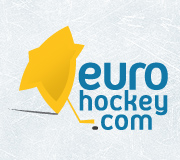Milan’s olympic arena: race against time, money and expectations
Delays, funding disputes, and NHL warnings put pressure on Milan’s flagship Olympic venue as the 2026 Winter Games draw near. Read more»

After the first season without team changes for what seems like an eternity, the British EIHL has moved to create a more competitive league by introducing a conference system
 Rourke Chartier
(F)
Rourke Chartier
(F)
 CSKA Moskva
CSKA Moskva Dresdner Eislöwen
Dresdner Eislöwen Christian Neuert
(F)
Christian Neuert
(F)
 Blue Devils Weiden
Blue Devils Weiden EHF Passau Black Hawks
EHF Passau Black Hawks Filip Reisnecker
(F)
Filip Reisnecker
(F)
 EHC Lausitzer Füchse
EHC Lausitzer Füchse Luca Münzenberger
(D)
Luca Münzenberger
(D)
 Kölner Haie
Kölner Haie EC Kassel Huskies
EC Kassel Huskies Jouka Juhola
(F)
Jouka Juhola
(F)
 Hokki Kajaani
Hokki Kajaani KuKi Harjavalta
KuKi Harjavalta Mark Yanchevsky
(D)
Mark Yanchevsky
(D)
 Neftyanik Almetyevsk
Neftyanik Almetyevsk Izhstal Izhevsk
Izhstal Izhevsk Yevgeny Rymarev
(F)
Yevgeny Rymarev
(F)
 Izhstal Izhevsk
Izhstal Izhevsk
 Czech Rep.:
Tipsport extraliga |
1.liga |
2.liga
Czech Rep.:
Tipsport extraliga |
1.liga |
2.liga
 Slovakia:
Tipsport Extraliga |
1.liga
Slovakia:
Tipsport Extraliga |
1.liga
 Sweden:
SHL |
HockeyAllsvenskan
Sweden:
SHL |
HockeyAllsvenskan
Other: EBEL | Belarus | Croatia | Denmark | Estonia | France | Great Britain | Iceland | Italy | Latvia | Lithuania | MOL-liga | Norway | Poland | Romania | Serbia | Slovenia | Spain | NHL | AHL |
Delays, funding disputes, and NHL warnings put pressure on Milan’s flagship Olympic venue as the 2026 Winter Games draw near. Read more»
Late goals, wild comebacks and a crowded leaderboard — Extraliga drama reaches boiling point Read more»